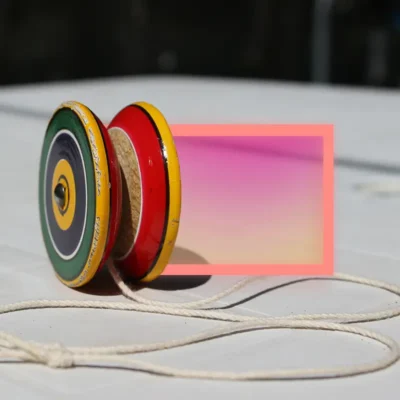A fan’s notes on meditation
Loving football – specifically loving England’s team during a cup final – means resigning yourself to heartbreak, over, and over, and over. In this meditation, Rohan Gunatillake explores the singular anguish routinely visited upon dedicated fans of a favorite team. Within a mindful life, that anguish can become its own kind of beauty.


Transcript:
A fan’s notes on meditation
ROHAN GUNATILLAKE: Hi there. It’s Rohan. This week I’m sharing another special meditation based on what’s happening in my own life. When you’re known for something like meditation or mindfulness, people can tend to assume that you’re always this kind of calm cliche. It’s not always like that.
England vs. Scotland, Wembley Stadium, London, 15th of June, 1996.
I’m 16 years old, and me and my sister are at our first ever international football match. Or you might call it a soccer match if you’re that way inclined (I’m not).
It’s a beautiful day in many different ways. England scores early. But then Scotland gets the chance to equalize via a penalty but they miss.
And moments later, the troubled genius that is Paul Gascoigne scores a wonder goal to make it 2-0, and we’re on our feet for the rest of the game.
It’s a party and we stay behind after the final whistle for a good 20 minutes, singing “It’s coming home, it’s coming home, football’s coming home,” the new anthem of all England fans, which still lasts to this day, 25 years later. The old 80,000 seater stadium is rocking. It’s the best moment of my young life.
11 days later we lose to Germany on penalties. Gareth Southgate – the current England manager as it happens – missing the kick that sees us knocked out of our first home tournament in thirty years. I’m inconsolable. Germany goes on to win the whole thing. The greatest summer of my teenage years is over.
This is a meditation about football. Actually it’s not really about football. It’s about what it’s like to be a fan of the England men’s football team.
I’m sorry.
Because that story is a story of hope. And yes, some joyous moments. Of drama and redemption. But ultimately, it’s a story of failure and heartbreak.
As someone who’s been into meditation for many years now, you get to learn the times and contexts where your practice is really tested. Dental surgery. Your two-year-old taking two hours to get down to sleep. England in major tournaments. And as of this episode being recorded, we’re in the middle of the European Championships, and England are still very much in it.
So with football and meditation on my mind, I’ve been thinking about what might be the things I could do to bring more mindfulness and balance to it all for the remaining games. So welcome to my big mood.
England vs. West Germany, Wembley Stadium, London, 30th of July, 1966. The World Cup final.
England wins 4-2 after extra time. Thanks a great deal to a famously dodgy refereeing decision. The World Cup on home soil. I’m minus 24 years old. I have no connection to this event. Other than that it becomes the reference point for everything that comes after it in England football. Because it never got better than this.
The runup to this summer’s Euros was all very familiar. This is our time. We’ve watched every other major country in Europe have their moment in the sun. France, Portugal, Spain, Italy, Germany, of course Germany, hey even Denmark and Greece. All winners of the World Cup and/or Euros since 96. But this is our time. This is a special group of players.
It’s fantasy. Obsessive thinking. Obsessive patterns of mind that arise every two years, despite the decades of evidence to the contrary. In technical meditation language, it’s called mental proliferation. Getting caught up in the story. And the extra pain of England supporters is that it’s the same story every time but we do it all the same. Maybe this time it’ll be different. You may know this one.
There are two main ways to deal with proliferation. One is just to move the mind elsewhere. So try that now. When caught up in the fantasy and in my case the delusion, flip the mind into the body. So the mind gets absorbed in something else and the obsessive thinking becomes starved of attention.
So try that. Whatever is happening in your mind right now, commentary on what I’m sharing, thoughts of what you’re doing tomorrow, bits and pieces of thoughts, whatever. Drop into the body. Flip into the body. Into a sense of touch, of steadiness, of tension even. Getting a sense of what that switch, that flip feels like. The intentional flip of the mind away from thinking and into the body.
That’s one way of dealing with it. The other way of dealing with proliferation is not to run away from it – which is totally fine sometimes – but to see through it.
So just sitting, lying, standing, walking, however you are.
Having started the meditation with me talking about football, your mind might already be spinning away. Okay. I don’t like sports, I preferred Rohan’s previous meditation about love. Whatever your mind is doing. Notice any proliferation that exists.
For me I’m thinking about team formations. About who’s going to make the starting lineup. Even about what I want to eat for dinner the night of the next game.
So when you notice the mind running away. Not judging yourself that you’re getting caught up in it. Not even dismissing it or flipping away from it.
Instead notice how your mind is now and name it. Planning. Annoyed. Calm. Thinking about the future. Whatever’s happening in your mind.
Because the transformative power of mindfulness is when the mind learns about itself. When it sees its patterns. And because our minds are ultimately on our side, when it sees which common patterns of proliferation and delusion are actually causing us trouble, it drops them. So our job is to see the patterns again and again until the evidence is just too much.
See the patterns.
Notice the results of those patterns.
Let the mind do its work.
England vs. West Germany, the Stadio Delle Alpi, Turin, 4th of July, 1990. The World Cup semi-final.
It’s the tournament when I first get into football. I’m 10. The World Cup known as Italia 90. Set to the soundtrack of Luciana Pavarotti belting out “Nessun Dorma,” the iconic aria from Puccini’s Turandot. And arguably the start of modern football.
And we lose to the Germans again on penalties. Stop me if you’ve heard this one before. Gascoigne famously in tears on the pitch during the game. Oh so many tears. Romantic failure is my generation’s first experience of football. Shakespeare couldn’t make it up. Actually he probably could, because he knew a thing or two about tragedies and farces.
England vs. Croatia, Moscow, Russia, 11th of July, 2018. Another World Cup semi-final, there having been the best part of 30 years of failure since the last.
We score early. Then lose control and get beaten 2-1 after extra time. I’ve thought about this game pretty much every week since. The final was on my birthday. England could have been in it, but they aren’t. I’m heartbroken. Again.
Life doesn’t always work out how we want it to. And what I’ve learnt over the years is that it can take some work to nudge the mind away from what we don’t have towards what we do have.
I’m reminded of a conversation I had with a meditation teacher of mine, I’m not sure if I’ve mentioned it before.
I was reporting to him about what was happening in my practice, and I was complaining that it was not much. No great insights. No deep concentration states. Just nothing much at all really.
So what was present? He pushed me. Just calm, I said, a sense of stillness. Most people dream of that, he told me. Pointing out.
I was focusing on what wasn’t here and as such was ignoring the wonderful qualities that were.
So that is the lesson I will take into the next England games in the tournament. To enjoy the play when it’s good.
How the players come across as such good humans, some of them being national heroes of social justice issues.
So let’s do that.
Sensing in body and mind for what is here now that can be celebrated.
Calm. Appreciation. Quiet. Warmth.
Sensing into what is here and good. Whatever it is for you. And enjoying it, however subtle. And letting go of the idea, for now, that it needs to be other than this.
England vs. Iceland, Nice, France. 27 of June, 2016, the last Euros.
We lose to Iceland 2-1. And we’re out. Iceland. Iceland. They have a population of 356,991 people. I can’t even.
The thing about tournament football and sport in general is that someone wins and everyone else loses. Thankfully life isn’t generally like that. But it can feel like that.
As I prepare for the inevitable England loss in this Euros and the victory of another country, I’ve been thinking about what are traditionally called the four divine abidings. A bit of a clunky old-school name. What they are are four qualities of heart which are trained in the mindfulness tradition, so as to grow our hearts and capacity for connection with others.
Three will be familiar to you: kindness, compassion, and equanimity or balance. But the last one is rarely spoken about in pop mindfulness teaching, and it’s known as sympathetic joy, again another clunky translation.
It means resonating with the joy of others. This might be actually the hardest thing to do in sports fandom. To be lifted up by the success of those you don’t support.
In the rest of life it’s being happy for the person who got the job you were going for. The person ahead of us in the queue. The old friend from school who is way more successful than you.
Or the person you don’t really know but who during lockdown somehow managed to learn a new language, mastered sourdough baking and got fit, while you were just trying to keep the kids alive and the house not a complete mess.
It’s hard, you know, it’s hard to practice sympathetic joy. And I think that’s why it’s not so commonly taught. But let’s try.
And let’s do the easy version.
Think of someone, real or imaginary, who has just had a great thing happen to them. Find the example that means the most to you. The birth of a child. Getting a new job. Falling in love. Learning a guitar riff that they’ve been trying to nail for a while. Even the mundanity of someone who was looking for something in their house and found it.
Bring any image to mind like that, of someone experiencing joy, large or small. And bask in it yourself.
Even though it’s nothing to do with you. Because it’s nothing to do with you.
And the more we do this, the more we’ll feel connected with others. And believe it or not, the better chance we have to our own team’s failures not hurting so much.
England vs. Germany, Wembley Stadium, London, 28th of June, 2021.
I’m now years old. We win 2-0 and beat Germany in a knockout game in a major tournament for the first time since 1966. It’s actually a masterclass in how to win, and it feels quite alien. Yes there’s joy. But there is mainly release. And tears.
My wife asks me if I’m okay. I don’t know.
It’s totally okay for there to be parts of your life where calm and balance and wisdom don’t always make their way in. It’s okay to be complicated. To be different people.
By the time you’re hearing this we may have crashed out. Or we may have won it. But in the moment where I am we’re still in it, still in with a chance of glory. I love that. Hope, anticipation, delight captured in time.
Go well. And take care.




